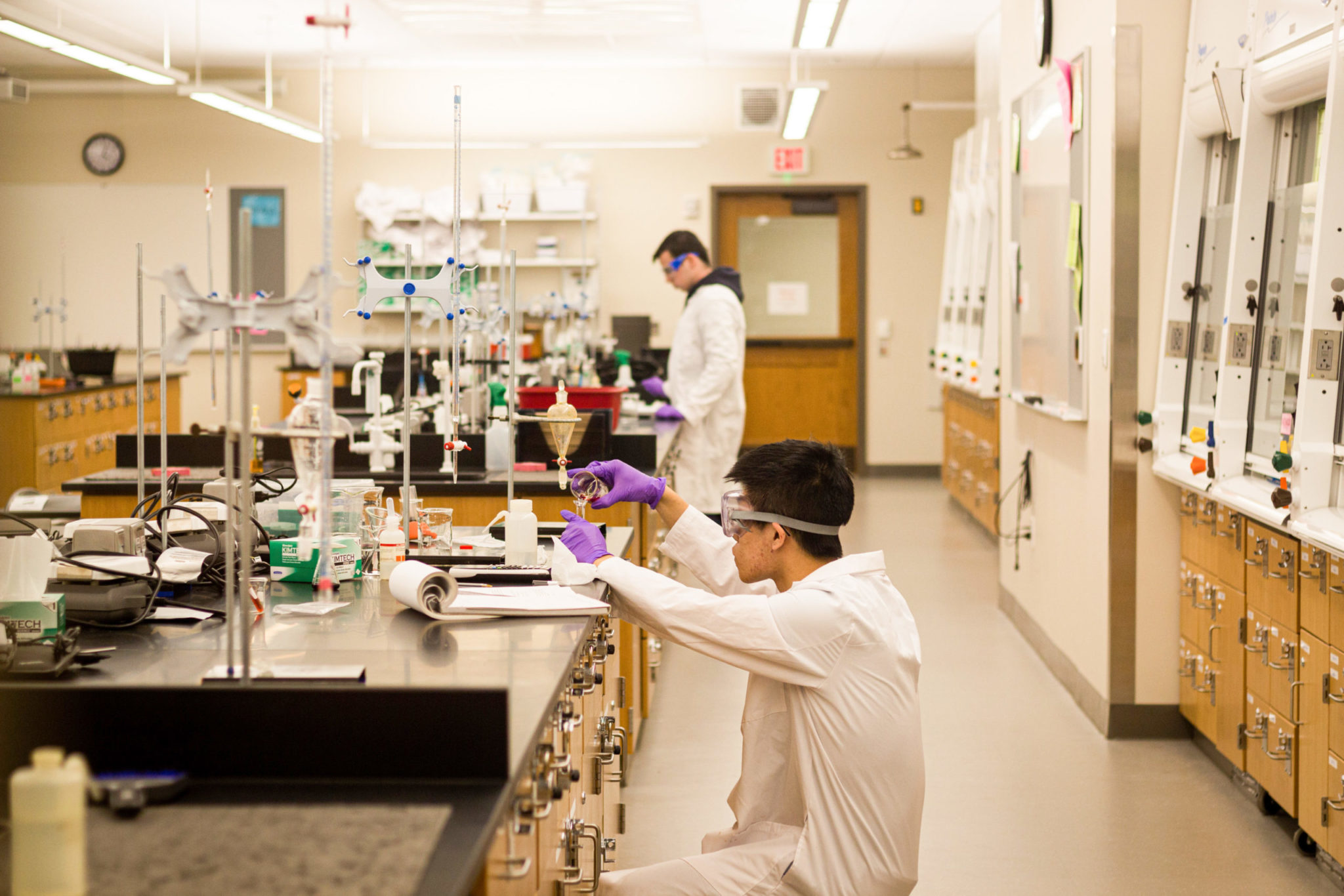
Daniel Zhao
As the on-campus quarantine period comes to an end, in-person laboratory courses have taken precautions to protect the health of students and instructors — including reduced lab sizes, shortened labs and measures to ensure social distancing.
In a semester of primarily remote learning, science, technology, engineering and math lab courses are some of the few classes in which undergraduate students can receive in-person instruction. As space allows, students enrolled in-residence can sign up to go into a lab to practice techniques and perform experiments. The in-person component of lab classes is optional, and it does not negatively impact their grade if students choose not to attend. Students enrolled remotely, or those who choose to take labs online, will have access to recordings of the experiments made by instructors and teaching assistants.
In an email to the News, organic chemistry lab professor Christine DiMeglio detailed her organic chemistry lab’s new procedures. Still, in-person students will find a different lab setup than in previous years. For one, they will have reduced capacity — half the usual, in some cases.
“In addition to limiting the number of live participants, we have rearranged our spaces, purchased additional equipment and reorganized our routines in order to minimize foot traffic, limit or eliminate sharing of equipment and maintain social distance at all times,” DiMeglio wrote.
She added that the usual ventilation and personal protective equipment available in the labs will help to protect students and staff. So too will access to personal cleaning supplies and planned lab decontamination procedures.
Other labs are taking similar precautions. Professor Aruna Pawashe, who co-teaches a lab on biochemistry, explained that Yale installed clear dividers between lab benches and the instructor’s desk, marked and separated supplies for each student to avoid contamination and plans to disinfect shared surfaces with alcohol. Pawashe added that her lab classes will start with an optional 10-minute meditation and include a Zoom break with optional yoga to help student wellness.
In addition to physical changes, many of the activities done in the labs have changed from previous semesters. In the genetics lab, Professor Iain Dawson has modified experiments to reduce close contact and keep students safe. Many lab instructors are adjusting their experiments to remove the need for shared equipment and removing unnecessary portions of the experiments to reduce the amount of time in the lab.
Professor Narasimhan Ganapathi — known to students as Dr. G — also noted that COVID-19 has created problems for lab courses due to the importance of hands-on lab experience. He said that professors are “trying to offer [an in-person lab] to as many students as we can because the courses are very robust and give a solid foundation.”
For online learning in lab courses, however, it is difficult to fully replicate the in-person lab experience. In an email to the News, physical chemistry lab professor Paul Cooper noted that the online portion “obviously cannot replicate the same experience as being in the lab. There is unfortunately a scarcity of online resources, like simulations, for most of [the] things we do in [my lab class].”
To help with this problem, many lab instructors are filming videos of themselves performing the experiments, holding live lectures, and having synchronous Zoom sessions where students can interact with TAs as they perform the experiments live. Many professors noted that assignments and assessments for in-person and online students are the same and students are not penalized for not participating in the optional in-person components.
Cooper said he hopes that despite the many changes, students still get the necessary skills out of the lab courses.
“Hopefully the plans put in place over summer will still lead to students, who are in-person, [having] a rewarding lab experience,” Cooper wrote in an email.
DiMeglio also stressed the importance of recognizing all of the people involved in both in-person and remote classes.
“Our work in the undergraduate organic lab, for both the live and remote sections, is made possible because of the support of MANY people [who make this possible],” she wrote.
In-person instruction for lab courses will begin on Monday, Sept. 14.
Brett Jennings | brett.jennings@yale.edu







